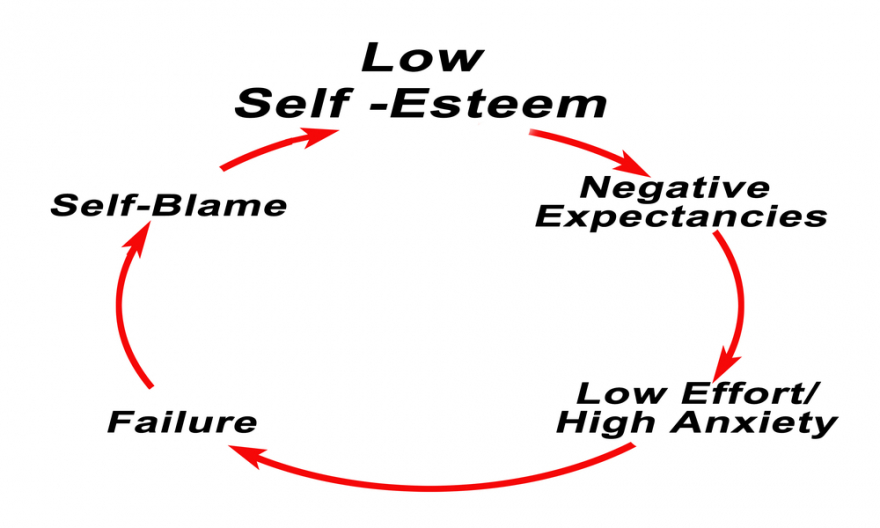|
Eliminate Self-Sabotage and Become the Success You Have Always Wanted to Be
Rev. Dr. Kitty Boitnott, NBCT, RScP
Heart-Centered Career Transition & Job Search Coach | Life Strategies Coaching
"You can't do that!" "That's waaaay too hard for you!" "Even if you try, you'll probably just fail." "Who do you think you are, anyway?"
Do these phrases sound familiar? Have you heard any of them (or all of them) as the critical refrains inside your head when you set out to do something new or important?
For example...
Have you ever started a new diet on Monday only to give up on it by lunchtime on Tuesday? Have you ever joined the gym so you could meet your New Year's resolution to get more fit only to stop going to the gym by mid-February?
Have you ever missed a deadline for school or work because you decided to go out with your friends when you should have spent that time working on the project?
Perhaps you have you gone on a shopping spree to deal with the pain of a disappointment, adding to your mounting credit card debt. (A debt that is already out of control.)
These various examples are descriptions of "self-sabotage." And we are all guilty of sabotaging ourselves on occasion. Unfortunately, for some of us, it is the norm rather than the exception to the rule in our lives.
Self-sabotage may be the result of your having low self-esteem.

Sometimes self-sabotage is the result of a trauma one faced as a child or young adult. If the trauma has never been acknowledged and healed, the self-sabotaging behavior might be a form of self-punishment.
Self-sabotage is rarely something we do with conscious intent.
That is what makes it so tricky to spot and eliminate. More often, the behaviors and negative self-talk are going on in our subconscious minds. That makes dealing with self-defeating behaviors more challenging to recognize and cut out.
Self-sabotage is something most people have dealt with at some time or another. The good news is that you can beat it! In this post, we’ll look at what may be causing you to indulge in self-sabotaging behaviors. And we will look at some practical ways to counteract it.
What is Self-Sabotage?
Before covering how to eliminate self-sabotaging behaviors, however, it might be helpful to understand what self-sabotage is.
According to an article in Psychology Today, self-sabotage is “behavior... [that] creates problems and interferes with long-standing goals. The most common self-sabotaging behaviors are procrastination, self-medication with drugs or alcohol, comfort eating, and forms of self-injury such as cutting.” ("Self-Sabotage" |Psychology Today: https://www.psychologytoday.com/basics/self-sabotage).
More often than not, self-sabotage is the result of an unconscious thought or behavior that conflicts with our conscious desire to succeed. Self-sabotage is the result of engaging in a particular action that goes directly against what we need or want to do. It can stop us from achieving our goals and dreams. It may show up in the form of that inner critical voice we all have, telling you that you can’t do something you want to do.
The critical inner voice refers to a pattern of damaging thoughts toward ourselves and others. These little voices create an internalized dialogue. The outcome of the discussion is that it fosters many harmful consequences. Some of these are distrust, self-criticism, and self-denial. Others include addictions and a withdrawal from goal-achieving activities. They affect every part of our lives. Self-sabotage damages our self-esteem and confidence. It harms our relationships and our performance and accomplishments at school and work.
Now that you understand what self-sabotage is, you may be wondering why you engage it so frequently.

What Causes Self-Sabotaging Behaviors?
If you want to succeed, why would you sabotage yourself with your own negative behavior? Bad habits, negative self-talk, and other ways we sabotage ourselves can come from many sources. Self-sabotage is destructive behavior that many of us find ourselves engaging in.
Self-sabotage is used as a way of coping in stressful situations or when we feel like we aren't "good enough."
Self-sabotage is often due to poor self-esteem. You may suffer from low self-worth, for example, if you had a harsh or overly critical parent. Self-sabotage can cause you to have no self-confidence. People who suffer from this type of behavior pattern can't control their emotions well. They react to circumstances or people in ways that prevent them from reaching their goals.
The Most Common Signs of Self-Sabotage
Did you know that you can be self-sabotaging without knowing it? If you aren’t aware of it, there are several ways you might be doing it. How do you know what the signs and symptoms that you are sabotaging yourself with are?
Here are some of the more common symptoms and signs. See if you recognize any in yourself in any of these examples:
- Do you frequently use words like, “I should be” or “I can’t."
- Do you feel a conflict between your hopes, dreams, and desires against your failure to change anything?
- Do you feel a deep sense of low self-esteem?
-
Do you feel that no matter what you try, you just can’t succeed?
- Do you often experience feelings of frustration?
-
Do you ever experience emotional depression?
-
Do you ever put yourself down and tell yourself, “I’m not good enough.”
-
Do you engage in behavior that is dangerous for your health and safety, such as drinking, drugs, or risky sexual behaviors?
-
Do you procrastinate getting projects done at work, school, or even in keeping agreements with your intimate relationships?

Procrastination can take many forms. Do you...
-
Frequently put things off until the last minute and then justify not getting those things done with rationalizations and excuses?
-
Start projects but never finish them?
-
Feel unmotivated even when you have lots of exciting opportunities?
-
Dream of doing something but never act on it?
Worrying can also show up in different forms, also. Do you...
- Worry over things that don’t matter in the long run?
- Believe others will think less of you if you fail?
- Fret that if you succeed your friends or family won’t like you anymore?
-
Doubt yourself and your abilities even when you know you’re capable?
-
Have feelings of stress and anxiousness, unexplained depression, and panic attacks?
Being angry with yourself others and your situation may include the following:
- Using aggressive rather than assertive communication.
- Engaging in passive-aggressive behavior.
-
Using anger, resentment, or jealousy to destroy relationships with others (family, friends, co-workers).
Feelings of worthlessness may include the following:
- Embellishing other people's achievements while lessening your own.
- Taking unfair or misguided criticism too much to heart.
- Letting others put you down.
- Perfectionism. Wanting everything to be perfect.
These are just a few examples of the various ways people sabotage themselves.
Often we don’t even recognize we’re doing it until it’s too late.
As I’ve already mentioned, the first step to beating self-sabotage is to recognize when you are doing it. What else can you do to start helping yourself? How can you be kind to yourself?

Take a look at these five tips to help you start becoming a friend to yourself instead of beating yourself up:
1. Understand your problem. Recognize your behavior when you are doing it. When you catch yourself saying, “I can’t,” or “I’m not worthy enough to...” change that into a positive. Instead, say “I can do whatever I want” or “I deserve to …” Repeat these positive affirmations often. Work on improving your self-esteem by realizing you don’t need to please others to be happy.
2. If you are having trouble recognizing when you are self-sabotaging yourself, write about it when you catch yourself. Keep a journal. Describe the experiences or to find patterns of behavior that trip you up. This exercise will help you become more aware of your behavior, and that is part of understanding the problem so you can correct it.
3. Face your fear or self-doubt by taking affirmative action. It doesn’t have to be an all or nothing action, either. Take a small step toward what you are afraid of. It will be scary. But facing that fear, a small step at a time, lets you grow your confidence. And you’ll be able to build on that confidence for the next level.
4. Do something just for you every day that will make you feel good about yourself. Do something that you will enjoy. Take a yoga class, attend a cooking class, get a manicure, or take a stroll in nature. Doing one little thing that makes you happy builds your self-esteem over time.
5. Challenge your self-sabotaging thinking. Ask yourself what more profound thoughts are behind the self-sabotaging talk. Is it rational and based on clear facts? Or is it irrational? Are past unsuccessful encounters keeping you afraid and doubting yourself?
Once you’ve recognized the signs of your self-sabotaging behavior, you can begin taking action to avoid repeating it. By taking small steps, even when you’re afraid, you begin to build your self-confidence. That in itself is a big step in removing the self-sabotaging thoughts and behaviors.
Don't ever think that you are the only person on the planet who doubts yourself on occasion.
We all do it at least occasionally. We have all faced daunting challenges that seemed insurmountable. We have all suffered failure in some form or another. To grow into a person who is strong and secure, we learn from those failures and challenges. It forces us to grow, and as a result, we automatically become more confident in our abilities.
So, let me challenge you. The next time you catch yourself procrastinating or not taking on a challenge that feels daunting, ask yourself what's really stopping you? Is the fear real and rational? Or is it just your own head getting in the way of your possible success? Distinguish between the two, take up the challenge, and watch yourself soar!
Until next time.
|